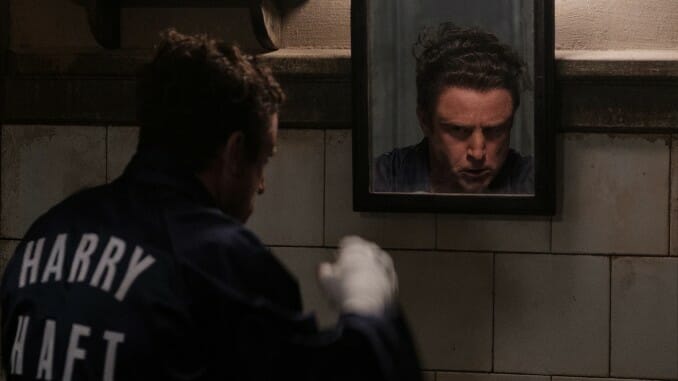Gripping Performances Earn Holocaust Boxing Tale The Survivor a Majority Decision

In 1943, the now-legendary boxer Harry Haft competed in his first bout. Instead of an audience of cheering fans, he performed for a crowd of sadistic Nazis; instead of competing in an arena, his ring was a Polish concentration camp; rather than fighting another trained boxer, he threw punches at fellow Jewish prisoners until the blows killed them. Haft is one of the integral figures in the cruel and barbaric history of concentration camp boxing. Trained by an SS guard for his own entertainment, Haft was forced to compete in a grim total of 76 fights as a prisoner. But his story doesn’t end there. When he finally managed to escape the camp, Haft used his skills as a boxer to garner national attention by fighting legends such as Rocky Marciano, hopefully earning the notice of his lost—and presumed dead—love. The Survivor, directed by Barry Levinson from screenwriter Justine Juel Gillmer’s take on Harry Haft: Auschwitz Survivor, Challenger of Rocky Marciano, tells the athlete’s stranger-than-fiction story in flashback.
Haft’s tale of survival forms the basis for an engaging and thrilling film premise. The frustrating aspect of stories like this, though, is that sometimes the filmmakers adapting them lean too much on the strength of the source material, and ask it to do all of the legwork. Sadly, this is at times the case in The Survivor. The bulk of The Survivor takes place in 1949, with Harry (Ben Foster) in the throes of his professional boxing career. Scenes of Harry’s present consistently waltz around his past, not allowing the viewer to forget the atrocities that he suffered in the concentration camps. Naturally, the juxtaposition of past and present have the potential to serve as a powerful commentary on the inescapability of memory, but Levinson ultimately shoots himself in the foot. He boxes the flashback scenes into a frustratingly predictable formula: Each scene in the camp is cloaked in a wash of hazy, redundant black-and-white (there is no way a viewer wouldn’t know these scenes take place in the past) that’s distracting and inadvertently gives the scenes an unneeded melodramatic tone.
But this isn’t to say that the memory-based framing device doesn’t sometimes work. When Levinson leans into more subtle framing methods, the way that the timelines meld together is effortlessly powerful. As Harry walks up to the boxing arena after escaping, a shot of his feet matches with a similar shot from the camps as he partakes in a somber march. These mirroring shots remind us that this isn’t a film about boxing, but about trauma and loss. Moments like these remind of this fact, but The Survivor doesn’t always remember exactly what it wants to be.
-

-

-

-

-

-

-

-

-

-

-

-

-

-

-

-

-

-

-

-

-

-

-

-

-

-

-

-

-

-

-

-

-

-

-

-

-

-

-

-








































